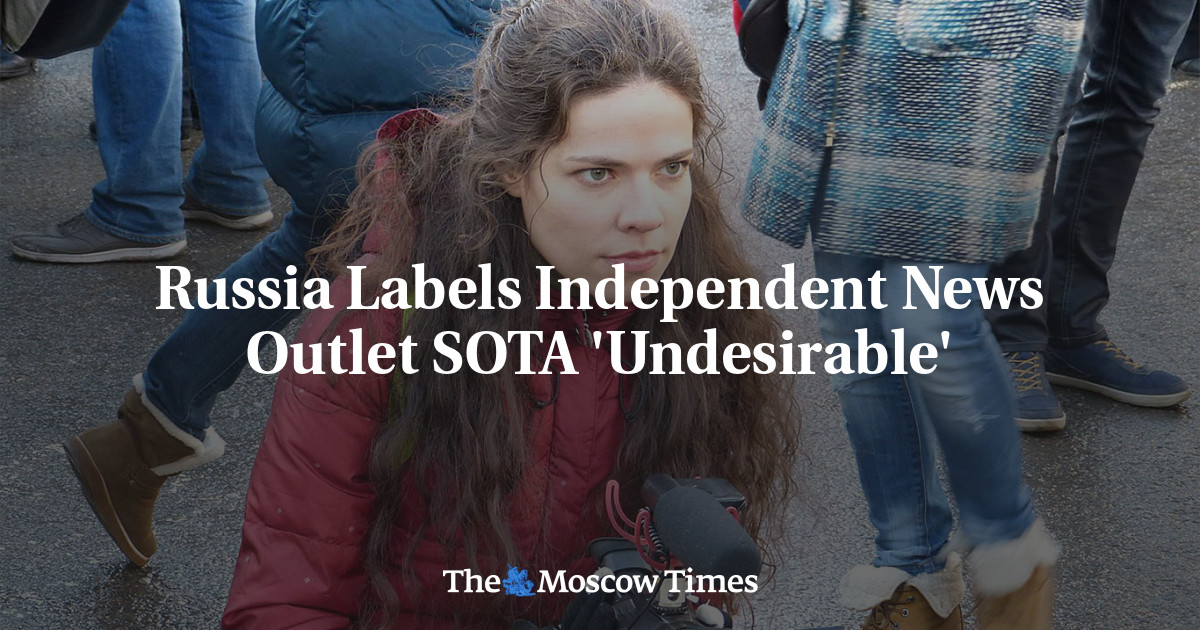
Russian authorities on Thursday labeled the independent news outlet SOTA as “undesirable,” effectively banning anyone from working with or having links to the organization.
Russia’s General Prosector’s Office, which announced the designation, described SOTA’s news coverage as “nothing more than an outright attempt to destabilize the socio-political situation inside Russia.”
It also accused the news outlet, known for its coverage of protests and prosecutions against anti-war Russians, of showing the public a distorted picture of events in Russia, which “creates tension and irritation within society.”
The “undesirable” designation bans SOTA’s work inside Russia, puts staff members at risk of jail time, and criminalizes engagement with the outlet, including sharing its content online.
The General Prosector’s Office claimed that SOTA receives support from the West, with “the goal of undermining the spiritual and moral foundations of Russian society.”
It also said the outlet was working on the instruction of “Western non-governmental organizations,” including SIA TV Rain and The Insider, both of which are independent news outlets the Russian authorities designated as “undesirable” in the years after the full-scale invasion of Ukraine.
SOTA denied the claims that it has ties to the two news outlets, as well as to “Western handlers.”
“We certainly oppose the war and the Putin regime and adhere to objective journalistic standards in our work,” the outlet said in a statement on Thursday, vowing to continue providing news coverage despite the “undesirable” designation.
Russia’s state internet watchdog Roskomnadzor blocked SOTA’s website in March for spreading “false” information about the war in Ukraine and the Russian military.
Moscow introduced its “undesirable” list in 2015 to crack down on foreign NGOs and ban Russians from working with or donating to them.
Authorities have since used the law on “undesirable” organizations to target independent news outlets, human rights groups, environmental organizations, and educational institutions.